- click to return to the main list of the elements of genuine faith in Amida Buddha -
When one has faith
(shinjin), one is convinced that Amida Buddha and His Pure Land exists, and
that the Promise He made in His Primal Vow is true, so he simply entrusts to
this Buddha and wishes to go to His Pure Land (Buddha-field of Amida) after
death. Saying Namo Amida Bu[1]
often or seldom means exactly this – “I entrust to Amida Buddha/I take refuge
in Amida Buddha and I wish to go to His Pure Land”. It also means, “Thank you
Amida Buddha for saving me and taking me to your Pure Land at
the end of this physical body”.
The genuine saying of Amida's
Name comes automatically after entrusting to Him. Thus, the Nembutsu is both an
expression of faith and gratitude that you are saved as you are by Amida
Buddha.
Shinran Shonin said:
"Although
the one moment of shinjin and the one moment of nembutsu are two, there is no nembutsu separate from
shinjin (faith), nor is the one moment of shinjin separate from the one moment
of nembutsu."[2]
"Amida
vowed to take into the land of bliss those who say the Name, and thus, to entrust oneself deeply and say the Name
is to be in perfect accord with the Primal Vow. Though a person may have
shinjin, if he or she does not say the Name it is of no avail. And conversely,
even though a person fervently says the Name, if that person's shinjin is
shallow he cannot attain Birth. Thus, it is the person who both deeply entrusts
himself to Birth through the nembutsu and undertakes to say the Name who is
certain to be born in the true fulfilled land."[3]
Rennyo Shonin also
said:
"'Namo' means 'to take refuge in';
it means to entrust yourself to Amida with the assurance of your
salvation."[4]
Next, what is the meaning of “say my Name perhaps even ten times” from the Primal Vow?
Shinran Shonin explained:
"In
the Primal Vow are the words:
'Saying my Name perhaps even ten times'.
Know from the words 'ten times' that appear from the beginning in the Vow itself that saying the Name is not limited to one utterance. And the word 'perhaps even' makes it clearer still that there is no set number of times one should say the Name."[5]
'Saying my Name perhaps even ten times'.
Know from the words 'ten times' that appear from the beginning in the Vow itself that saying the Name is not limited to one utterance. And the word 'perhaps even' makes it clearer still that there is no set number of times one should say the Name."[5]
"'Saying
my Name perhaps even ten times': In encouraging us to say the Name that
embodies the Vow, the Tathagata added 'perhaps even' to the words 'ten times'
to show that there is no set number of
times the Name must be said, and to teach sentient beings that there is no determined hour or occasion for saying it. Since we
have been given this Vow by the Tathagata, we can take any occasion in daily
life for saying the Name and need not wait to recite it at the very end of life.."[6]
As I explained at the begining of this
subchapter, one who is sincerely in love will say „I love you” often or seldom,
and wish to be with the person he loves. Similarly, a person who sincerely
entrusts to Amida Buddha will express this faith by saying His Name and wish to
be born in His Pure Land. How often or seldom one says "I love you"
to the person he loves is of no importance, as long as love is there, in his
heart. In the same way, any number of
Nembutsu is equally good as long as genuine faith in Amida Buddha is present.
We should not be obsessed with the numbers of recitations, but simply entrust
to Amida Buddha for our birth in His Enlightened Realm, and enjoy the Nembutsu
in a relaxed way. Let us hear the clarifications of our Masters on this topic:
"Neither
those who say the Name more than ten times nor those who only hear the Name are
omitted or excluded from birth in the Pure Land”.[7]
"
Question: Which is superior in merit: a mere single utterance of nembutsu or
ten repetitions of nembutsu?
Answer: They
have the same merit with regard to birth in the Pure Land.
[...] The
number of recitations is not the issue. The merit of birth in the Pure Land is
equal, as is clearly stated in the Primal Vow. How can there be any
doubt?"[8]
"You
state that with one utterance of the nembutsu the cause of Birth is fulfilled.
It is truly so. Even so, however, it does not mean that a person should not say
the nembutsu beyond the one utterance. This matter is explained fully in
Essentials of Faith Alone. Please read this work carefully. [..] I have been
taught that since it is the Primal Vow of Birth through the nembutsu, whether
one says the nembutsu many times or whether one says it only once, one will be
born. It must never be taught that one will certainly attain Birth with only
one utterance but will not attain Birth if one says it many times. Please
carefully read Essentials of Faith Alone."[9]
In the Eseentials
of Faith Alone it is said:
"Some [falsely] say: 'The essence of the path to
birth in the Pure Land is a trusting mind. Once this mind of trust has become
settled, it is not always necessary to recite the nembutsu. The sutra teaches:
'say it even once'; hence, one utterance is understood to be sufficient. When one
seeks to accumulate many utterances, it is, on the contrary, a failure to trust
in the Buddha's Vow.'
Thus
they greatly mock and gravely slander those who recite the nembutsu, saying
that they are people who do not truly believe in the nembutsu.
These people [...] adhering to the doctrine of 'once-calling', they stop saying the nembutsu. This is the means the demons have used to deceive the sentient beings of this latter age. In such explanations there are both good and bad points. In principle the statement that one utterance suffices as the act for birth in the Pure Land is perfectly true; nevertheless, it is going too far to say that the accumulation of a large number of utterances shows the lack of a trusting mind. It does show, however, a lack of a trusting mind if one believes that one utterance is insufficient and Birth[10] requires accumulating a great number of utterances. [...] Master Shan-tao stated that as long as one is alive, one should constantly say the nembutsu. Are we to say such people lack trust? To dismiss them with ridicule would be wrong. 'One utterance' actually appears in a passage of the sutra. Not to believe it is not to believe the Buddha's word. Thus, one should believe in the settling of Birth with one utterance, and further continue saying the Name without negligence throughout one's life. This is the true meaning of the teaching."[11]
These people [...] adhering to the doctrine of 'once-calling', they stop saying the nembutsu. This is the means the demons have used to deceive the sentient beings of this latter age. In such explanations there are both good and bad points. In principle the statement that one utterance suffices as the act for birth in the Pure Land is perfectly true; nevertheless, it is going too far to say that the accumulation of a large number of utterances shows the lack of a trusting mind. It does show, however, a lack of a trusting mind if one believes that one utterance is insufficient and Birth[10] requires accumulating a great number of utterances. [...] Master Shan-tao stated that as long as one is alive, one should constantly say the nembutsu. Are we to say such people lack trust? To dismiss them with ridicule would be wrong. 'One utterance' actually appears in a passage of the sutra. Not to believe it is not to believe the Buddha's word. Thus, one should believe in the settling of Birth with one utterance, and further continue saying the Name without negligence throughout one's life. This is the true meaning of the teaching."[11]
In the The
Clarification of Once-calling and Many-calling, by Master Ryukan, it is
said:
"These
days the practice of the nembutsu is being entangled in vigorous debate over
the doctrines of once-calling and many-calling. This debate touches on matters
of crucial importance and demands that we exercise great care. Both the advocacy of a position of
once-calling that rejects many-calling, and the advocacy of many-calling in
denunciation of once-calling, run counter to the essential meaning of the
Primal Vow and fail to take into account the teaching of Shan-tao.
Many-calling is nothing but the accumulation of single callings, for human life is such that a person should consider each day that this may be his last, each minute that this may be the end. From the very moment of our birth, this realm of impermanence is merely a fleeting and temporary dwelling; our lives may be compared to a lantern flame before the wind, or likened to dew upon a blade of grass, and there is no escape anywhere for even a single person, whether wise or foolish, from the extinction of breath and the draining away of life. If our eyes may close forever even in this present instant, then we say Namo Amida Butsu, aspiring to be saved by Amida's Primal Vow and welcomed into the Pure Land of perfect bliss, based on our trust in the supreme virtues embodied in a single calling and our reliance on the great and vast benefit of that one calling.
As life continues, this single calling becomes two or three callings; they accumulate, so that one moment becomes an hour, then two hours; a day or two; a month, a year, two years, ten or twenty years, eighty years. The immutable nature of our existence is expressed truly in the statement that we should wonder how it is that we are still alive today, and whether this very instant will be our last in this world. [...]
Many-calling is nothing but the accumulation of single callings, for human life is such that a person should consider each day that this may be his last, each minute that this may be the end. From the very moment of our birth, this realm of impermanence is merely a fleeting and temporary dwelling; our lives may be compared to a lantern flame before the wind, or likened to dew upon a blade of grass, and there is no escape anywhere for even a single person, whether wise or foolish, from the extinction of breath and the draining away of life. If our eyes may close forever even in this present instant, then we say Namo Amida Butsu, aspiring to be saved by Amida's Primal Vow and welcomed into the Pure Land of perfect bliss, based on our trust in the supreme virtues embodied in a single calling and our reliance on the great and vast benefit of that one calling.
As life continues, this single calling becomes two or three callings; they accumulate, so that one moment becomes an hour, then two hours; a day or two; a month, a year, two years, ten or twenty years, eighty years. The immutable nature of our existence is expressed truly in the statement that we should wonder how it is that we are still alive today, and whether this very instant will be our last in this world. [...]
If a
person maintains that many-calling is necessary, even though there is no many-calling separate from
once-calling, nor any once-calling apart from many-calling, then surely he
is a greater enemy of the Pure Land teaching than those who simply ignore
passages of the Larger Sutra of Immeasurable Life such as the one that teaches:
[...] 'If a person thinks on that Buddha even once, he will attain Birth.'
Or the one that declares beyond doubt:
'If there are persons who, having heard the Name of that Buddha, leap and dance with joy and say it even once, know that they receive the great benefit; that is, they acquire the unexcelled virtues.'
Or also those of Master Shan-tao, who, in accord with the intentions of the sutra, determined:
'Saying the Name even once in joy, all attain Birth.
With ten voicings or one voicing - a single utterance - all decisively attain Birth.'[12]
If, however, because of belief in this, you adhere single-mindedly to the position of Birth through once-calling and declare that many-calling is erroneous, then do you intend to overlook the words of the Primal Vow, 'saying the Name perhaps even ten times' and ultimately take the teaching of saying the Name for one to seven days in the Smaller Sutra to be pointless? [...]
And further, one truly knows now, without so much as a single thought of doubt, that Amida's universal Primal Vow decisively enables all to attain Birth, including those who say the Name even ten times, or even but hear it.[13]
These passages teach beyond all doubt that there should be no controversy over the positions of once-calling and many-calling; the person who has simply entrusted himself to Amida's Vow should continue to say the Nembutsu until the end of his life, with birth in the Pure Land as his goal. You must not cling to one or the other extreme. I have been unable to express my innermost thoughts as I would like; still, I hope the reader will be able to grasp my meaning through these notes.
Those who adhere to once-calling as well as those who cling tenaciously to many-calling invariably meet with inauspicious deaths, for both deviate from the meaning of the Primal Vow. Consider this carefully. It cannot be said too often that you must avoid confusing the truth that many-calling is itself once-calling and that once-calling is many-calling."[14]
[...] 'If a person thinks on that Buddha even once, he will attain Birth.'
Or the one that declares beyond doubt:
'If there are persons who, having heard the Name of that Buddha, leap and dance with joy and say it even once, know that they receive the great benefit; that is, they acquire the unexcelled virtues.'
Or also those of Master Shan-tao, who, in accord with the intentions of the sutra, determined:
'Saying the Name even once in joy, all attain Birth.
With ten voicings or one voicing - a single utterance - all decisively attain Birth.'[12]
If, however, because of belief in this, you adhere single-mindedly to the position of Birth through once-calling and declare that many-calling is erroneous, then do you intend to overlook the words of the Primal Vow, 'saying the Name perhaps even ten times' and ultimately take the teaching of saying the Name for one to seven days in the Smaller Sutra to be pointless? [...]
And further, one truly knows now, without so much as a single thought of doubt, that Amida's universal Primal Vow decisively enables all to attain Birth, including those who say the Name even ten times, or even but hear it.[13]
These passages teach beyond all doubt that there should be no controversy over the positions of once-calling and many-calling; the person who has simply entrusted himself to Amida's Vow should continue to say the Nembutsu until the end of his life, with birth in the Pure Land as his goal. You must not cling to one or the other extreme. I have been unable to express my innermost thoughts as I would like; still, I hope the reader will be able to grasp my meaning through these notes.
Those who adhere to once-calling as well as those who cling tenaciously to many-calling invariably meet with inauspicious deaths, for both deviate from the meaning of the Primal Vow. Consider this carefully. It cannot be said too often that you must avoid confusing the truth that many-calling is itself once-calling and that once-calling is many-calling."[14]
Simply stated, debates over „once-calling” or
„many-callings” of the Name are stupid and dangerous for one’s karma as we have
seen from the above. Both attitudes shows a lack of genuine faith and understanding
of the Primal Vow. Shinran Shonin also advised us to stay away from them:
"In
the capital also there seems to be much arguing over such matters as
"once-calling" and "many-calling"; this should never take
place at all. [...] In such disputation over once-calling and many-calling,
merely futile and argumentative words are voiced. You should by all means avoid
it. People who do not understand
these matters discuss things of little significance. You should avoid such
arguments by all means."[15]
„The dispute over once-calling and many-calling is
pointless. The
tradition of the true Pure Land teaching speaks of birth through the Nembutsu.
Never has there been mention of ' Birth through once-calling' or 'birth through
many-calling'. Please understand this."[16]
[2] Shinran Shonin, Lamp for the Latter-Ages, letter 11, The Collected Works of
Shinran, Shin Buddhism Translation Series, Jodo Shinshu Hongwanji-ha,
Kyoto, 1997, p.538
[3] Shinran Shonin, Lamp for the Latter-Ages, letter 12, The Collected Works of
Shinran, Shin Buddhism Translation Series, Jodo Shinshu Hongwanji-ha,
Kyoto, 1997, p.539
[4] Thus I Have Heard from Rennyo Shonin (Rennyo Shonin ‘s Goichidaiki
Kikigaki), translated by Hisao
Inagaki, Dharma Lion Publications, Craiova, 2008, p.18
[5] Shinran Shonin, Notes on Once-Calling and Many-Calling, The Collected Works of
Shinran, Shin Buddhism Translation Series, Jodo Shinshu Hongwanji-ha,
Kyoto, 1997, p.482
[6] Shinran Shonin, Notes on the
Inscriptions on Sacred Scrolls, The
Collected Works of Shinran, Shin Buddhism Translation Series, Jodo
Shinshu Hongwanji-ha, Kyoto, 1997, p.494
[7] Shinran Shonin, Notes on the
Inscriptions on Sacred Scrolls, The Collected Works of Shinran, Shin
Buddhism Translation Series, Jodo Shinshu Hongwanji-ha, Kyoto, 1997, p.506
[8] The Promise of Amida Buddha -
Honen's Path to Bliss; English translation of the Genko edition of the
works of Honen Shonin - Collected
Teachings of Kurodani Shonin: The Japanese Anthology (Wago Toroku),
translated by Joji Atone and Yoko Hayashi, Wisdom Publications, Boston, 2011,
p.124-125
[9] Shinran Shonin, A Collection of Letters, Letter 3, The Collected Works of
Shinran, Shin Buddhism Translation Series, Jodo Shinshu Hongwanji-ha,
Kyoto, 1997, p.561
[10] When “Birth” appears with
“B” it means birth in the Pure Land. When it appears with small “b” it means
birth in the various samsaric realms of existence.
[11] Master Seikaku, Essentials of Faith Alone, The Collected Works of Shinran,
Shin Buddhism Translation Series, Jodo Shinshu Hongwanji-ha, Kyoto, 1997, p.697
[14] Master Ryukan, The Clarification of Once-calling and Many-calling, The
Collected Works of Shinran, Shin Buddhism Translation Series, Jodo Shinshu
Hongwanji-ha, Kyoto, 1997, p.701-704
[15] Shinran Shonin, A Collection of Letters, Letter 1, The Collected Works of
Shinran, Shin Buddhism Translation Series, Jodo Shinshu Hongwanji-ha,
Kyoto, 1997, p.559
[16] Shinran Shonin, Notes on Once-Calling and Many-Calling, The Collected Works of
Shinran, Shin Buddhism Translation Series, Jodo Shinshu Hongwanji-ha,
Kyoto, 1997, p.489

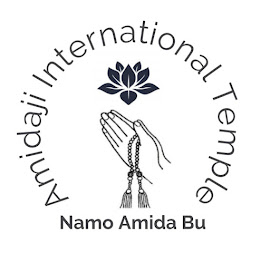



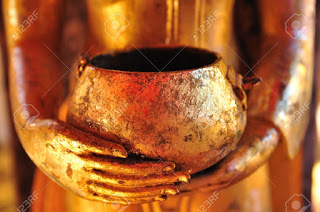


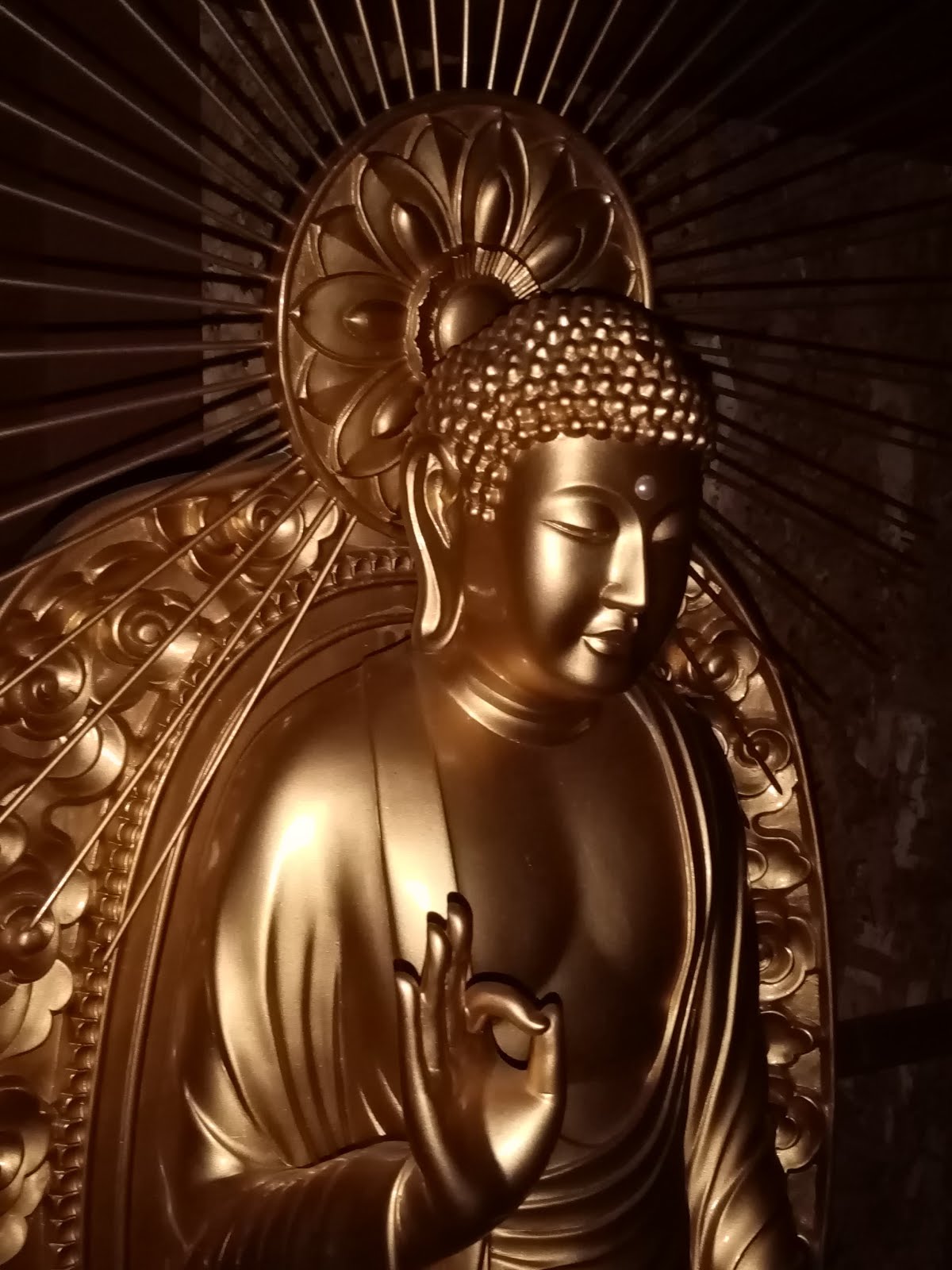










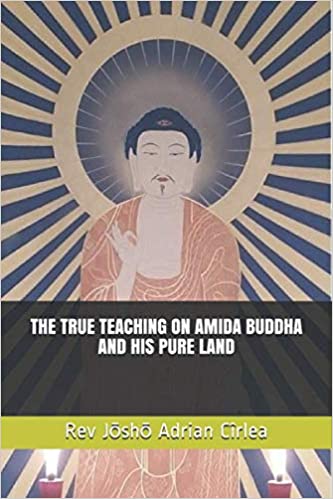

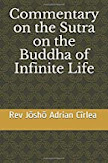



0 comentarii:
Post a Comment